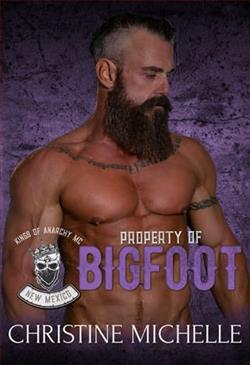Page 39 of To Get Me to You (Wishful 1)
“Miranda and her family—your family and this town have been that for me. So I intend to win this war. I won’t watch what happened to Morton happen here. I can’t.”
She carried so much guilt. He wanted to ease that burden for her but didn’t know what he could say that she would believe. So he just brushed the hair back from her face and said in all seriousness, “We won’t.”
Norah shifted back, as if his touch pained her.
Cam felt the first hints of true unease slither through him. “What’s wrong?”
“It can’t work, Cam.”
His heart began to thud. “What can’t?”
Her eyes, those lovely, dark eyes, were full of apology. “Us.”
The hand he still held was trembling, and she looked on the verge of tears. But he couldn’t shove down the temper and disbelief, “I think the last two weeks are pretty damned good evidence to the contrary.”
“This isn’t about compatibility or attraction. But there’s no future here. There never was. I was always leaving, at some point. I have a life, a career to salvage. You just made me forget that for a while. Staying to run this campaign is a delay of the inevitable. We’re not fling kind of people, and I think it’s wiser to stop things before they go any further.”
“I pretty much blew wisdom all to hell the moment I decided to kiss you.”
“We got in over our heads. I’m just trying to do the right thing here. I don’t want to hurt you, but my life isn’t here. Not beyond the temporary.”
More than half the reason he’d asked her to stay was to give her a legitimate reason not to go back, to continue to explore what was growing between them. And she was all set to walk away.
Same song, different verse.
“If you truly think the life you left behind is worth more than what you’ve found here, then you’ve just failed Life Lessons 101. Miserably.”
She flinched and pulled her hand free. “We’ve established that’s the one area Burkes regularly fail at. Please don’t be angry. We have to be able to work together on this campaign.”
Of course. The campaign. No matter what was going on between them, he needed her to help save his town. She’d agreed to stay, however long it took. So he’d use that and find a way to convince her that there were more important things in life than career and prove that she had a place here, if only she was willing to take it.
So Cam stopped arguing. “Fine.”
Norah blinked at him. “Fine?”
“That’s not unreasonable logic.” Cam went to pour coffee because he needed to put some physical distance between them. “I don’t like it, don’t agree with it. But there are bigger things at stake here than us. We don’t have a lot of time to put this together. Just two weeks until the next City Council meeting. What’s next?”
Her shift into work mode was almost like seeing a set change for a play. She squared her shoulders, shutting her emotions away, and reached for one of the legal pads. Cam wished he could do the same as easily.
“Who has final say on this decision? Is this going to be a vote of the City Council or will it go out for a public ballot?”
“As the law currently stands, it’s a City Council vote.”
“So our goal is to persuade the decision makers to say no.” She scribbled that at the top. “There are two avenues to do that, and we’ll follow through on them both. On your side, you’ll be fighting this from within the system of city government. You know, or can find out, all the steps in the whole process of going from proposal to approval where there’s an opportunity to stop them in their tracks.”
“There aren’t nearly enough of those steps for my taste.”
“Nevertheless, we’re working with what we’ve got. You’ll be focusing on how the store would harm the community and the economy—and first thing tomorrow you should request an economic impact study from an independent contractor. Morton didn’t do that and should have.”
Cam stole one of the smaller pads and began to make his own list. “What about you?”
“My efforts will be geared toward showing how many members of the community support a ‘no’ vote.”
“Considering how many people we hypothesize will want a ‘yes,’ how do you plan to do that?”
“By educating the public—and myself—on the hidden costs of big box stores and creating a campaign to get the word out about that. But to do that I need data. About forty percent of persuasion is knowing your audience. I want to do a focus group with the local Chamber of Commerce.”
And a challenge straight out of the gate. “That’s gonna be a bit tough. The Chamber of Commerce is more or less defunct.”















